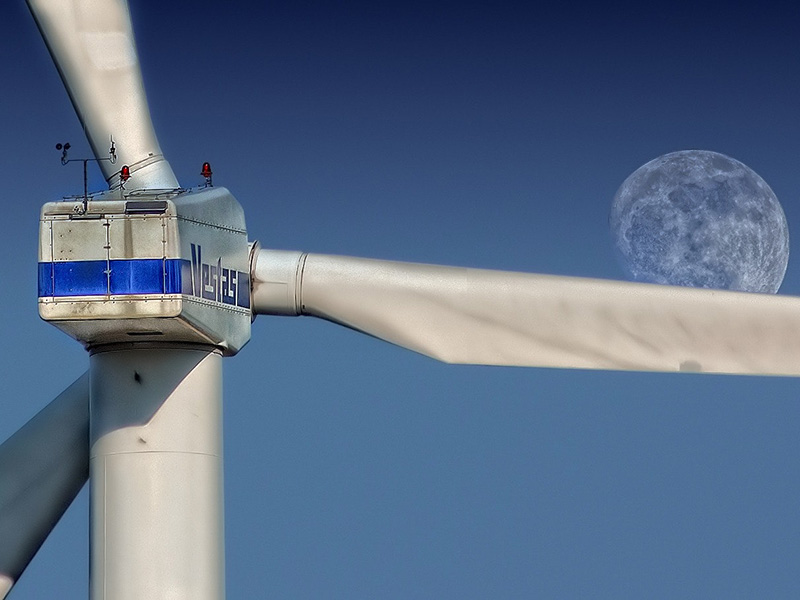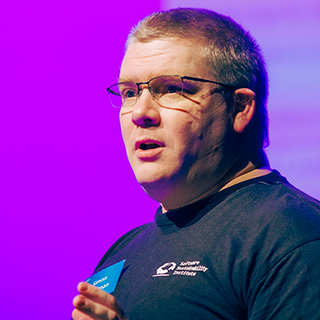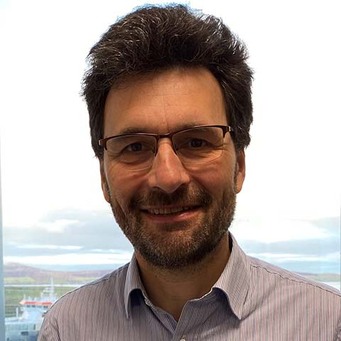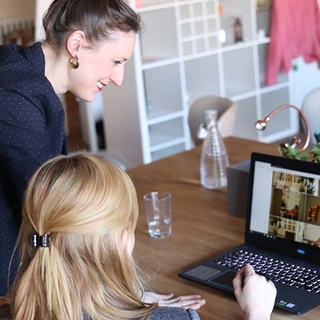
MSc Renewable and Sustainable Energy Transition
Skip to section
Key information
- Mode of delivery
- Online
- Start date
- September, January, May
- Duration
- Varies
- Qualification
- MSc
Contact
Contact our enquiries team
Contact usOverview
Our online MSc Renewable and Sustainable Energy Transition degree equips graduates with a comprehensive skill set to make a meaningful impact in the rapidly growing renewables industry. Focusing on the specific requirements of renewable energy developers, this programme will empower you to tackle the challenges associated with the transitional to renewable and sustainable energy, maximise economic advantages, and navigate regulatory and environmental obstacles. This MSc addresses the needs of various sectors in the circular economy including renewable energy developers, communities, and organisations striving to achieve net zero targets and combat climate change.
Upon completion of the programme, you will possess a diverse skill set that spans renewable energy technology, integration and development which opens up a wide range of opportunities and roles in renewable energy companies, government agencies, consulting firms, research institutions and non-profit organisations. You will have a nuanced understanding about the processes of creating and leading just transitions for enterprises, organisations and communities.
This programme is delivered by the International Centre for Island Technology (ICIT) and is focused on the key drivers of the exciting new and growing field of energy transition and transition engineering:
• Policy and economics of net-zero carbon.
• Renewable energy technologies, development processes and grid integration.
• Energy transition in transport, primary production, construction and manufacturing.
• Action for climate change through organisation, enterprise and technical shift.
• Transition engineering in the broadest sense - discovering how to build sustainable change through decarbonisation projects.
Degree duration
Online Learning: 2.5-8 years. On average, our PgDip studied via online learning are completed in 2-3 years, while MSc degree are completed in 3-8 years. Most students intend to complete their studies via online learning within 3-4 years.
Delivery of online degrees
Our course materials are made available online through the Virtual Learning Environment (VLE). The VLE links you with our expert academics and course materials through videos, webinars, articles, journals, assessments and discussion boards. Tutors will provide you, by phone, Skype or email, with academic support similar to that received by our on-campus students.
To find out more about time requirements, support and exams, view our How online learning works pages to find out more.
Course content
Year 1
Students on the online MSc Renewable and Sustainable Energy Transition undertake eight taught courses and are also required to complete a dissertation. As part of the eight taught courses on the Renewable and Sustainable Energy Transition MSc, Heriot-Watt online students must first take exams in two courses of the programme, Economics of Renewable Energy and Transition Engineering – Achieving Zero Carbon InTime. Based on the results from these courses students continue on the programme at MSc or at PG Diploma level.
Degree structure
Core
- Economics of Renewable Energy
- Transition Engineering - Achieving zero carbon InTIME
- Renewable Technology 1: Generation
- Energy Transition Lab
- Future Energy Systems in Buildings, Transport and Infrastructure
- Renewable Technology Commercialisation
- Integration of Renewable Technology
- ILES Environment Dissertation
Optional
- Environmental Processes
- Oceanography
- Climate Change, Sustainability and Adaptation
Detailed degree guide
Understanding, Knowledge and Cognitive Skills
Taught modules deliver core knowledge and understanding, for example: patterns of existing energy use; renewable resource distribution; and the current state of technology. Cognitive skills are developed through problem solving and the application of methods and models (e.g. EIA risk assessment, resource estimation economic appraisal techniques etc)
Scholarship, Enquiry and Research (Research Informed Learning)
Students are encouraged to read beyond the course material provided, and merit is given for this in assessments. Assignments are designed so that significant research is required beyond the information contained in the course notes and lectures. The dissertation requires the development and execution of a research methodology.
"MSc Renewable and Sustainable Energy Transition will provide a holistic view of renewable energy within society and the natural world. Whatever your background, you should learn enough about the environment, technology, and the social and economic context of renewable energy to be able to converse with specialists from any discipline."
MSc Renewable and Sustainable Energy Transition
Meet the Team

Assistant Professor
Simon Waldman
Dr Simon Waldman is programme leader for MSc ReSET, and the main lecturer for two of the modules. His current research interests centre around offshore renewable energy and using our understanding of the physics to improve planning and policymaking.

Professor
Susan Krumdieck
Susan is Chair in Energy Transition Engineering and Research Director of the Islands Centre for Net Zero. Susan has 25 years experience teaching energy engineering and working with government, companies and communities on engineering for sustainability.

Professor
Sandy Kerr
Professor Sandy Kerr is director of ICIT at Heriot-Watt's Orkney Campus. Sandy teaches economics of renewable energy to postgraduate MSc students. His research interests include how to maximise community benefits in the transition to net zero energy systems.
Fees and funding
Tuition fees
| Status | Per course [footnote 1] | Dissertation/Project [footnote 1] |
|---|---|---|
| UK / EU / Overseas | GBP1315 | GBP1820 |
- The tuition fees listed are for courses starting between September 2025 and August 2026. Fees normally increase annually. Find out more about our tuition fees.
Additional fee information
Financial support
Tuition fee loans are available to Scottish distance learning students on some taught postgraduate courses. Find out more from the Students Awards Agency Scotland (SAAS)
Scholarships and bursaries
We aim to encourage well-qualified, ambitious students to study with us and we offer a wide variety of scholarships and bursaries to achieve this. Each year, hundreds of students enhance their educational experience through a variety of Heriot-Watt and externally funded scholarships, including opportunities funded by the University's generous alumni community, based all over the world.
View our full range of postgraduate scholarships.
Entry requirements
Masters (MSc)
Masters (MSc) level entry applicants must have one of the following:
- Minimum of 2:2 honours degree or equivalent academic qualification in a related subject area.
- For postgraduate conversion courses, non-related degrees will be considered.
- Corporate (or chartered) membership of relevant professional institutions will also be considered.
As part of the eight taught courses on the Renewable and Sustainable Energy Transition MSc, Heriot-Watt online students must first take exams in two courses of the programme, Economics of Renewable Energy and Transition Engineering – Achieving Zero Carbon InTime. Based on the results from these courses students continue on the programme at MSc or at PG Diploma level.
PG Diploma
PG Diploma level entry applicants must have an ordinary degree in a related subject area and relevant post qualification industry experience.
Heriot-Watt Online students on Renewable and Sustainable Energy Transition MSc undertake eight taught courses and a dissertation. Students must first take exams in two courses of the programmes, Economics of Renewable Energy and Energy in the 21st Century. Based on the results from these courses students continue on the programme at MSc or at PG Diploma level.
Candidates who do not meet the above entry requirements or have no formal academic qualifications will be considered individually based on their CV and possibly interview. Admission via this route will be at the discretion of the Director of Recruitment.
Recognition of prior learning
We are committed to providing study opportunities to applicants who have a wide range of prior experiences through Recognition of Prior Learning (RPL). For more information on RPL, please contact the Online Admissions Team (egis-idl-apps@hw.ac.uk) ahead of application. We can only consider requests for RPL at the time of application to a course of study.
English language requirements
If English isn’t your first language, you’ll need to confirm your ability to meet the English Language Requirements for this programme.
A minimum of IELTS 6.0 or equivalent is required, with all elements passed at 5.5 or above. If you do not have IELTS 6.0, we offer a range of English Language Courses to help you meet the English language requirement for this programme prior to commencing your studies.
Employability
The MSc Renewable and Sustainable Energy Transition degree is designed to provide graduates with inter-related skills in the renewables sector. It addresses the needs of renewable energy developers as they seek to maximise economic benefits whilst grappling with challenges of overcoming regulatory and environmental issues, and securing finance.
Our graduates typically hold a wide spectrum of key positions within renewable energy technology developer companies, project development companies, utilities consultancies, governments, regulators and NGO's.
Graduate profiles
Visit our graduate profiles page to learn what some of our graduates said about their experiences studying for an MSc Renewable and Sustainable Energy Transition* at Heriot-Watt University.
* Previously known as MSc Renewable Energy Development
Why Heriot-Watt?
Flexibility and affordability
Study at a time and pace that suits you, and even while you work. HW Online offers pay-as-you-study courses and fees inclusive of exams and study materials, meaning you can focus on success, not extra costs.
Your career
Employers around the world actively seek out our graduates because they are work-ready. All our degrees are career-focused and relevant to the needs of industry. Around 95% of our students are in employment or further study within six months of graduating.
Online events
We host online events throughout the year, giving you the opportunity to speak to our academic teaching staff, meet students, find out what it is like to study using our Virtual Learning Environment (VLE) and discover how to enrol.
Lifelong connections
Upon completing your studies you will automatically join the UK's oldest alumni association The Watt Club, with 147k members worldwide.



